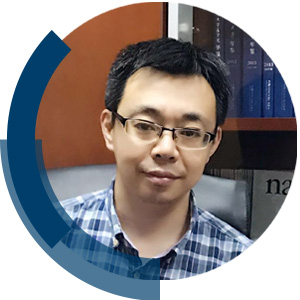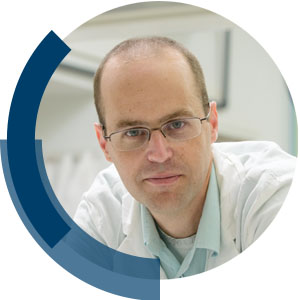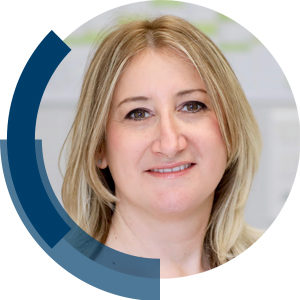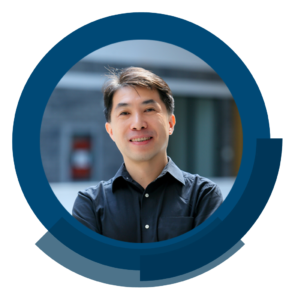We are delighted to welcome nominations for the 2023 RSC Medicinal Chemistry Emerging Investigator Lectureship
This Lectureship celebrates outstanding early career researchers who have made significant contributions in the fields of medicinal chemistry and drug discovery in their independent careers.
- This award is presented annually
- The nominations are shortlisted, and the winner is selected by a judging panel made up of the RSC Medicinal Chemistry Editorial Board
- The recipient of this award receives the opportunity to present at a relevant high-profile international meeting with a contribution of up to £1,000 to cover associated costs
Nominations will close 28 October 2022
Past winners of the RSC Medicinal Chemistry Emerging Investigator Lectureship (previously named the MedChemComm Emerging Investigator Lectureship) include:
- Dr Nir London (Weizmann Institute of Science, Israel) – 2022
- Dr Jacob Bush (GSK and The Francis Crick Institute, UK) – 2021
- Dr Chandradhish Ghosh (Max Planck Institute of Colloids and Interfaces, Germany) – 2020
- Dr Amanda Hargrove (Duke University, USA) – 2019
- Dr Gonçalo Bernardes (University of Cambridge, UK) – 2018
- Dr Laura H. Heitman (Leiden University, Netherlands) – 2017
- Dr Alessio Ciulli (University of Dundee, UK) – 2016
- Professor Richard Payne (University of Sydney, Australia) – 2015
- Professor Christian Heinis (École Polytechnique Fédérale de Lausanne, Switzerland) – 2013
Register here to watch a recording of our recent Lectureship webinar featuring our 2021 and 2022 winners, Dr Nir London and Dr Jacob Bush.
Find out more on how to nominate below
Who can be nominated
The RSC Medicinal Chemistry Lectureship is awarded through a process whereby nominations of candidates are invited from our community.
Open to all researchers globally
As part of the Royal Society of Chemistry, we believe we have a responsibility to promote inclusivity and accessibility to improve diversity. Where possible, we encourage each nominator to consider nominating candidates of all genders, races, and backgrounds. Please see the RSC’s approach to Inclusion and Diversity.
Eligibility
To be eligible for the RSC Medicinal Chemistry Lectureship, the candidate must:
- Be an active medicinal chemistry researcher, either in academia or industry, carrying out research that is within the scope of the journal
- Be an independent researcher (this includes Research Associates or Fellows who run their own research group; PhD students and postdocs are not eligible)
- Be at an early stage of their independent career (this should typically be within 12 years of completing their PhD, but appropriate consideration will be given to those who have taken a career break, followed a different career path or work in systems where their time period to independence may vary). Please contact the Editorial Office if you have any queries
How to nominate
Nominations can be made by anyone and must be sent via email to the Editorial Office. Self-nominations are not permitted. All nominators will be asked to confirm that, to the best of their knowledge, their nominee’s professional standing is such that there is no confirmed or potential impediment to them receiving the Lectureship.
To nominate a candidate, please provide:
- The name, affiliation, website URL and contact details of the nominee
- An up-to-date nominee CV (up to 3 pages in length is recommended)
- A letter of recommendation (500-word limit). Statements as to why a nominee is eligible if they are beyond 12 years of their PhD completion, for instance due to career breaks, will not count towards this word limit
- Contact details for a confirmed supporting referee. Please inform your referee of the nomination – the Editorial Office will request a supporting letter of recommendation (500-word limit) from this referee once the nomination has been received, where the referee should comment in detail on specific contributions/achievements/potential. Referees must state their relationship with the nominee e.g. this could be the nominee’s postdoc or PhD supervisor, line manager, project manager or academic mentor
Assessment process and selection panel
All eligible nominated candidates will be assessed by a judging panel made up of the RSC Medicinal Chemistry Editorial Board. Any Editorial Board members who have a conflict of interest will be removed from the selection panel.
The judging panel will consider the following core criteria:
- Excellence in research, as evidenced with reference to originality and impact
- Quality of publications/patents/software
- Innovation
- Professional standing
- Independence
- Collaborations and teamwork
- Evidence of promising potential
- Other indicators of esteem indicated by the nominator or referee
In any instance where multiple nominees are judged equally meritorious in relation to these core criteria, the judging panel will use information provided on the nominee’s broader contribution to the chemistry community as an additional criterion. Examples of this could include:
- Involvement with RSC community activities
- Teaching/demonstrating
- Effective mentorship
- Service on boards, committees or panels
- Leadership in the scientific community
- Peer-reviewing
- Promotion of diversity and inclusion
- Advocacy for chemistry
- Public engagement and outreach
















